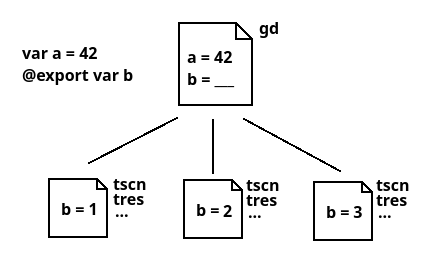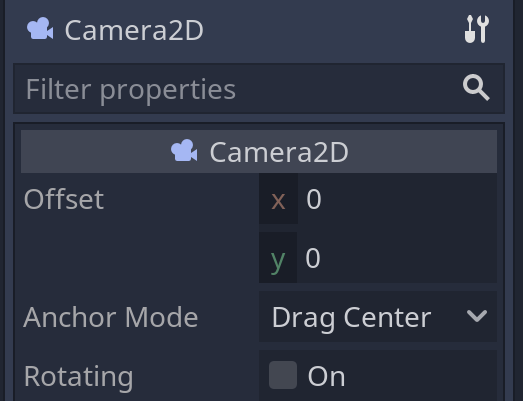they explain that
@exportdoes more than just exposing to the inspector, such as serialization and storing on disc, but personally I don't see howexportdoes encapsulate that any better than expose.
My opinion is not that it encapsulates it significantly better than your proposal per se, just that your proposed term doesn't make it better in principle. IMO, of course. The old keyword still has the benefit of familiarity for many existing Godot users, even if it comes at a price of confusion for newcomers. We do need to improve the docs, though, that is certain.
I'd like this to not become an argument about whether export or expose is better. We should not trivialize the choice here, we can still look for a better term that does actually reflect the functionality of the keyword. Especially since the proposal comes from the place of not realizing that there exists any additional functionality. I think this a great argument in itself to keep looking.




Describe the project you are working on
Any project that makes use of the
@exportannotation with the intention to expose a variable to the editor inspector.Describe the problem or limitation you are having in your project
I think there's a couple of downsides in terms of ambiguity to the export keyword. It has a strong meaning elsewhere in game development and editors in general, such as exporting the project, exporting an asset, etc.
As a consequence, looking up documentation and past help threads can be cumbersome. I've often found myself on the wrong docs page or having to sift through search results. it can also be confusing when asking questions about it. for instance, which kind of export is being referred to occasionally needs to be clarified in Discord help channels.
Some proof of the poor searchability: exported property - doesn't show up at all export - shows up as the 22nd item GDScript export - 22nd item again exporting - 17th item
you pretty much need to remember the exact title of the article - GDScript exports - do find it quickly. although to be fair that is also to some extent and issue of the readthedocs search. Google does a better job.
Furthermore, I think it's not even a particularly good word for describing the feature. Quoting @aaronfranke here:
Other users have also expressed confusion about it.
Describe the feature / enhancement and how it helps to overcome the problem or limitation
The first term that shoots to mind as an alternative is
@expose. Although it's a minuscule difference, I feel like it describes what users generally expect from this feature - exposing a variable to the inspector - much better. It's also a short and concise keyword similar to export, but without the ambiguity issue.There has been some critique to that idea brought up by @pycbouh: 1, 2, 3 they explain that
@exportdoes more than just exposing to the inspector, such as serialization and storing on disc, but personally I don't see howexportdoes encapsulate that any better than expose. Once again, I think @aaronfranke put it best:On the other hand, if the current
@exportkeyword has two distinct use-cases, then perhaps it should be split up into different annotations as mentioned by pycbouh.Describe how your proposal will work, with code, pseudo-code, mock-ups, and/or diagrams
A simple replacement of
@exportfor@expose, including the variations such as@export_range()becoming@expose_range().If this enhancement will not be used often, can it be worked around with a few lines of script?
n/a
Is there a reason why this should be core and not an add-on in the asset library?
n/a